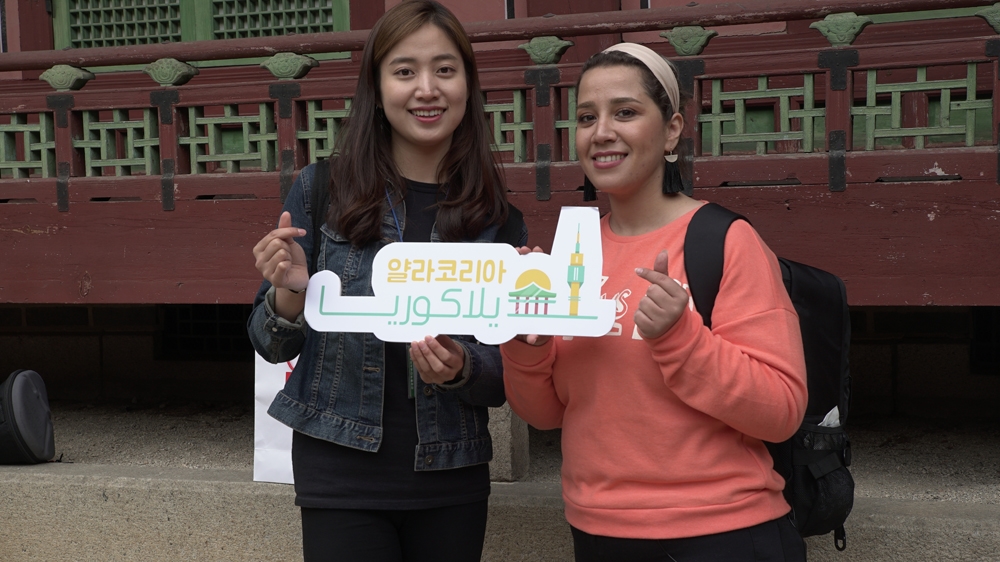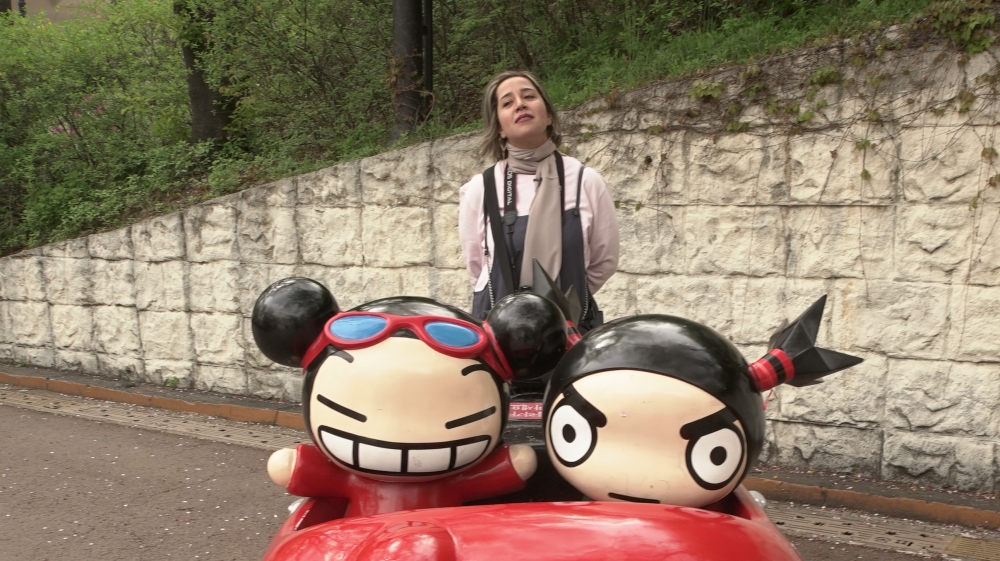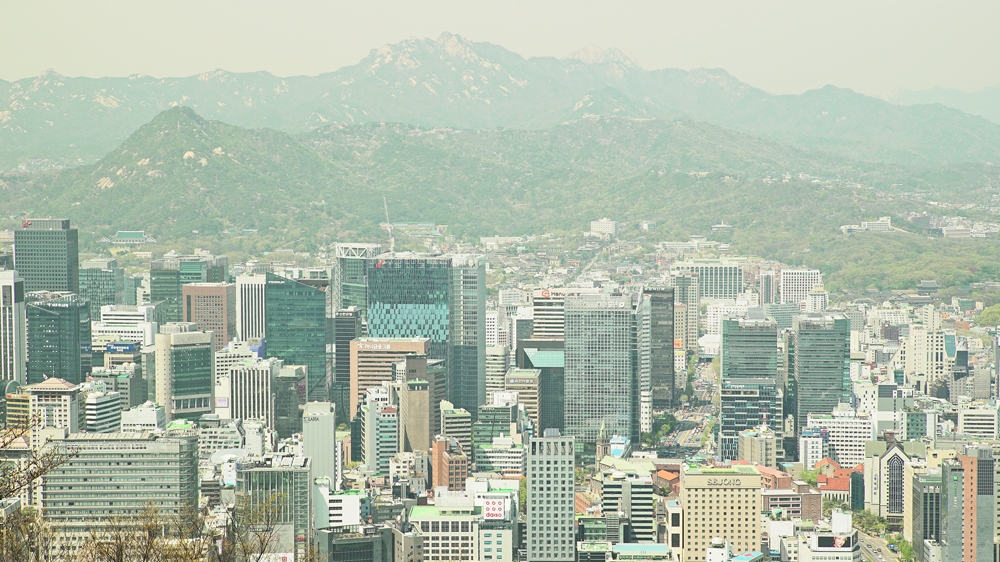Heba is a young Iraqi woman with a good job as an electrical engineer and the prospect of a decent future.
At 28, she owns a modern flat in the newly-built Bismayah New City in the Iraqi capital, Baghdad, where she lives with her mother and younger sister. It’s a vast development of neat, white and beige apartment blocks, wide, well-lit walkways and plenty of green spaces, where children can play and ride their bikes.
Heba says living there makes her feel safe and secure.
“This place has given us freedom and peace of mind,” she says of the complex that is one of many joint ventures between the governments of Iraq and South Korea.
But this isn’t Heba’s only South Korean connection.
In fact, she’s obsessed with all things South Korean. She uses Korean cosmetics, listens to Korean music, watches Korean dramas on television, cooks Korean food and has studied Korean Hangul with the aid of YouTube tutorials.
“Korea didn’t shape who I am, but it did bring out the real me,” she reflects.
 |
| Heba with Madeeha, an Arabic-speaking representative of YallaKOREA, a Korean tourism company for Arabs who may struggle with the culture when visiting South Korea [Al Jazeera] |
But Heba isn’t satisfied with pursuing her love for South Korea from afar. She dreams of one day being able to move there. And she isn’t alone.
Heba represents a new and growing trend among young Iraqis who find in South Korea a vision for the future. While life in Iraq seems chaotic and unpredictable, South Korea offers them an enticing example of order and stability.
But moving to South Korea is a huge undertaking. Heba risks losing her job and, along with it, her family’s main source of income. Not all of her family are supportive of it.
Korean Lovers in Baghdad follows Heba on an emotional journey as she pursues her dream and goes in search of her place in the world, encountering seemingly insurmountable obstacles along the way.
FILMMAKER’S VIEW
By Arij al-Soltan
Iraq is often in the news: for war, bombs, violence, corruption and the Islamic State of Iraq and the Levant (ISIL, also known as ISIS).
But when I visit Iraq, I see something different. I see resilience, determination and change. I see Iraqis carrying on with their lives, no matter what. I see that when everything falls around them, they stay standing.
During one recent visit to Baghdad, I met a group of conservatively dressed young women who were imitating Korean pop groups. I was intrigued by this unusual combination of cultures. The women were not just fans of K-pop; they’d learned the Korean language and were able to converse in it, they watched Korean films and TV dramas, they had their own social media circles. Korea was a part of their daily lives.
Heba, the central character in my film, Korean Lovers in Baghdad, immediately stood out. Her passion for all things Korean had compelled her to move with her family from an old neighbourhood of Baghdad to a new complex that had been built by a Korean firm. There, she would be a step closer to achieving her dream of living the Korean lifestyle and eventually moving to South Korea.
 |
| Heba is obsessed with all things Korean [Al Jazeera] |
The more I scratched beneath the surface, the more fascinated I became by this eclectic cultural mix. It was clear that this wasn’t just a fad or a teenage obsession. Young Iraqis were hungry for change, and wanted a space that offered acceptance and peace and pushed them to achieve something during otherwise bleak times.
The people I spoke to, both young and old, found Korean culture to be that space. It inspired them to pursue their dreams. Iraq, they said, could learn a lot from the Korean model.
More surprisingly, young women often cited Korean relationships as something to aspire to. This was unusual as the two cultures couldn’t be more different.
The fabric of Iraqi society has changed after three wars, and many of the young women I spoke to said that honesty and trust between the sexes were quickly disappearing. Iraqi men had become more patriarchal, controlling and violent, they told me, offering examples from the marriages of friends and relatives.
Women’s freedoms have regressed in Iraq and their movement has become more restricted in a general atmosphere of war and violence. Consecutive governments have made matters worse by diminishing women’s rights.
 |
| Overlooking the city of Seoul, South Korea [Al Jazeera] |
Still, I was surprised that Iraqi women would look as far as South Korea for a model of a modern relationship. They identified care, compassion and equality as a foundation of male-female relationships there, and expressed a strong desire to be in relationships that would give them space to grow and maintain a degree of independence. They rejected the Iraqi model, where all sorts of responsibilities and expectations were, by default, placed on the woman.
The story in the film of the man holding the umbrella perfectly embodies this. Iraqi women, like everyone else in the country, are yearning for compassion, and some feel they have found it in the Korean way of life. This was an interesting layer that I hadn’t expected and wasn’t able to fully explore in the film.
It is refreshing to hear Iraqi women clearly express what they want from a relationship. But it is also an awful indicator of what things have come to for women’s rights in Iraq.
But there is hope. These young women are starting to make a change by dreaming of something different for themselves. Whether their love for Korea will provide a temporary escape or something more long-lasting remains to be seen.
In the process of making this film, I learned that change is slow and painful and that personal growth comes at a cost. But the story of Heba and hundreds like her assures me that change is possible. One day, we may look back at this era in Iraqi history and see the Korean influence as a defining feature of this time. In times of war and desperation, the most extraordinary things can happen.
Source: Al Jazeera













